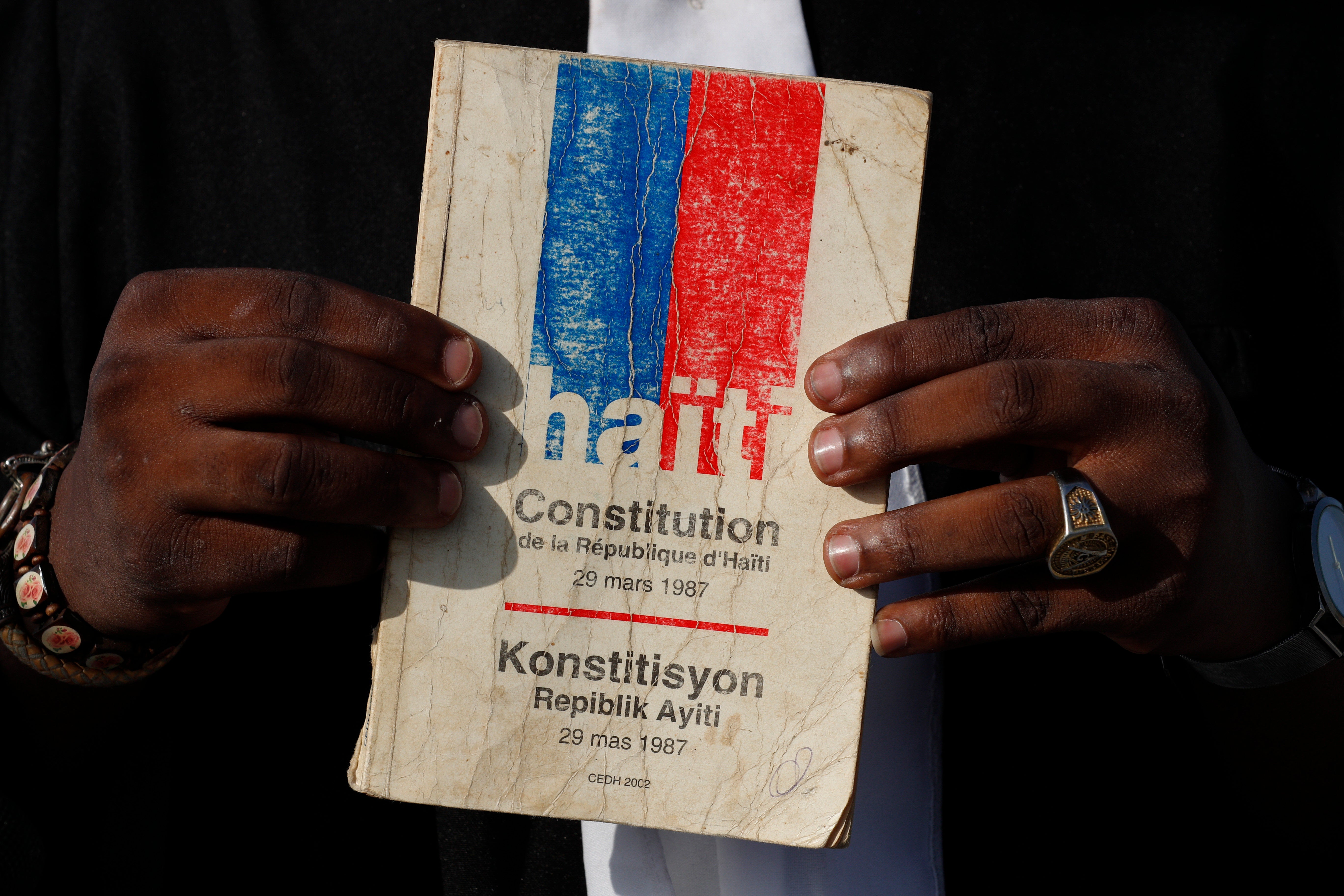Haiti opens debate on proposed constitutional changes
Haiti has unveiled multiple proposed changes to overhaul the country’s Constitution that officials plan to present to voters starting this week for an upcoming referendum that looms amid growing unrest

Your support helps us to tell the story
From reproductive rights to climate change to Big Tech, The Independent is on the ground when the story is developing. Whether it's investigating the financials of Elon Musk's pro-Trump PAC or producing our latest documentary, 'The A Word', which shines a light on the American women fighting for reproductive rights, we know how important it is to parse out the facts from the messaging.
At such a critical moment in US history, we need reporters on the ground. Your donation allows us to keep sending journalists to speak to both sides of the story.
The Independent is trusted by Americans across the entire political spectrum. And unlike many other quality news outlets, we choose not to lock Americans out of our reporting and analysis with paywalls. We believe quality journalism should be available to everyone, paid for by those who can afford it.
Your support makes all the difference.Haiti has unveiled multiple proposed changes to overhaul the country’s Constitution that officials plan to present to voters starting this week for an upcoming referendum that looms amid growing unrest
The public meetings are scheduled to be held across Haiti for the next three weeks, ahead of the April 25 constitutional referendum, which would be the first one held in more than 30 years.
One of the biggest changes is an omission in the draft issued by an independent commission tasked with creating the constitutional changes that have generated heated debates Haiti’s current Constitution bars presidents from serving two consecutive terms, but the draft only states that a president cannot serve for more than two terms; it says nothing about whether they can be served consecutively.
Human rights attorney Bill O’Neill told The Associated Press that his interpretation is that the omission would allow a president to serve two terms consecutively. He noted that those who drafted the 1987 Constitution currently in use were emerging from a 29-year dictatorship under two so-called “presidents for life”: François Duvalier and Jean-Claude Duvalier.
“The drafters were very wary of allowing anyone having too much unbroken time in the Presidency,” he said.
Other proposed changes include creating the position of a vice president to replace that of prime minister and establishing a unicameral legislature to be elected every five years to replace the current Senate and Chamber of Deputies, which was largely dissolved more than a year ago when President Jovenel Moïse began to rule by decree following a lack of legislative elections.
Another change also calls for legislators to be elected every five years to match the presidential term since some senators are currently elected every two to six years.
“This requires elections every 18 months on average,” states the document issued by the independent commission. “The difficulty of respecting this binding electoral agenda plunges the country into a chronic institutional crisis.”
Critics of the proposed changes say they see it as a power grab by Moïse, who says he will step down in February 2022 when his five-year term ends. The opposition, however, argues that his term began when that of former President Michel Martelly ended in February 2016, even though Moïse wasn’t sworn in until February 2017 following a chaotic election process that led to the appointment of a provisional president for one year.
Alfredo Antoine, a former legislator, said the changes are simply a proposal at this point and that people have the right to study them. He also said opposition leaders should seek to create a dialogue with Moïse instead of organizing protests as they insist he leave office by Sunday.
“They should not put oil on the fire,” he said.
Opposition leaders could not be immediately reached for comment.
As officials meet with certain sectors of society to discuss the proposed constitutional changes, some are demanding more inclusion. Ulrich Louisma, a 40-year-old air conditioning repairman, said people and officials other than the president should provide input on a potentially new Constitution.
“It can’t be a one-man show,” he said.
___
Coto reported from San Juan, Puerto Rico.